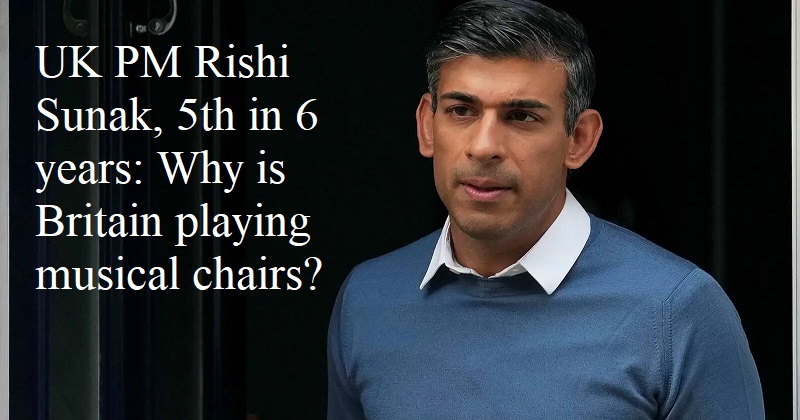
Rishi Sunak is the fifth Prime Minister of the United Kingdom in six years. In reality, he is the third leader to enter 10 Downing Street in London in less than two months. This is not how it always was. Before this, the nation had only twice experienced three PMs in a calendar year, the most recent time being in 1834. The UK has only three prime ministers in around three decades prior to the election of Gordon Brown of the Labour Party in 2007. David Cameron of the Conservative Party was Brown’s successor. His exit sparked a musical chairs contest after a lengthy tenure (2010–16). The current situation in the United Kingdom, however, has some far older roots.
EU AND BRITAIN
Britain’s economy was among the most prosperous and developed in the 19th century. There was a strong belief that European countries ought to be united following World War II. In order to stop its downward economic spiral, the UK joined the group of nations that included France and Germany in 1973. Two years after the grand union, in 1975, the nation had a referendum in which a vote to remain in the union was obtained.
Despite disagreements within the Conservative Party over the matter, John Major strengthened UK-EU relations when Thatcher resigned in 1990 as a result of a challenge to her leadership. When certain members of John Major’s party voted against him over the EU issue, his government nearly failed. Numerous measures to strengthen the union with the EU were introduced under Tony Blair’s presidency.
BREXIT
As a result of the Arab Spring in the Middle East and North Africa, new migratory waves have entered Europe and the UK. The UK’s exit from the EU was put to a vote by David Cameron, the leader of the bitterly divided Conservative Party. To guide the UK through Brexit was Theresa May’s responsibility (Britain exiting the EU). In 2020, the UK ‘Brexit-ed,’ with the same party’s Boris Johnson in charge of carrying it through. Markets were shaken by Brexit. The currency fell sharply. Brexit-related ambiguity was expected to last for several years. Brexit caused economic disruption as firms and trade struggled to adapt to the new order if the UK’s entry into the EU did not have the expected effects. The governments have, even to date, struggled to slay the Brexit ghost and find the right relationship with the rest of Europe.
The government struggled to pay for pensions and medical expenses due to increasing inflation, soaring borrowing, and ballooning debt. Johnson has moral flaws in addition to breaking his pledge to bring in investment. His Cabinet revolted against him, and he eventually resigned earlier this year. Markets were alarmed by Liz Truss’s announcement of tax cuts and spending hikes. The Conservative Party kept forming governments that came and went. The Ukraine War, the Cost of Living Crisis, and the Pandemic’s Aftermath were obstacles for Liz Truss. However, the markets were alarmed when she announced significant tax cuts and spending hikes.
The crisis in Ukraine is the most recent one in which the UK has been involved, but it is not the first. Tony Blair participated in the wars in Afghanistan and Iraq, and John Major committed British soldiers to the Gulf War. David Cameron later made a military intervention in the First Libyan Civil War.
AIM AT LEADERS, NOT PARTY
Recently, there has been an exceptionally strong emphasis on the leaders rather than the party. Contrary to earlier eras, however, there haven’t been any major conflicts that have inspired the public to support leaders like Winston Churchill. Social media today makes even the strongest vulnerable.
Now, social media exposes even the mightiest. Remember Johnson being fined for attending parties at Number 10 Downing Street? And Churchill could either have been wiser or managed to keep the news from breaking to the public. Rishi Sunak became an MP only in 2015 and is the youngest UK prime minister in about 200 years. Before losing to Truss in the race to become Conservative Party leader and PM earlier this year, Sunak, then Boris Johnson’s minister, fell out and quit.
Sunak may have made history by becoming the first black prime minister of the UK. However, if he is unable to address the issues of restoring the economy, the labour situation, the health service, addressing the post-Brexit issues, and clearing up the mess caused by the Ukraine war, he may also pass into history himself. The stakes are enormous not just for the UK but also for other regions. Greece’s debt crisis and Russia’s default in 1998 have both served as examples of how events in one nation can have far-reaching effects.

Post Your Comments